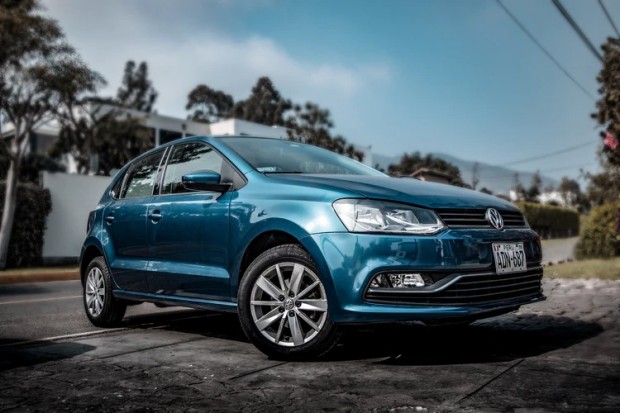Millennials are fiercely independent, hyper tech-oriented, and also pragmatic. So why would you pay car insurance the old-fashioned way? One can assume that more people are starting to ask this same question since pay-as-you-drive insurance is becoming more known.
You get the benefits of customizing your auto policy coverage with usage-based car insurance, like pay-per-mile, for the potential of substantial savings. Overall, pay-per-mile insurance can lower your insurance premium especially if you drive less.
What is pay-as-you-want car insurance?
Pay-per-mile insurance, also known as low-mileage car insurance or pay-as-you-go vehicle insurance, is a policy that provides full coverage, comprehensive and collision coverage, but charges you by the mile.
Instead of how your insurance company expects you'll drive, rates are set based on how frequently and how far you drive. Drivers who spend less time on the road will pay less in insurance rates than those who drive a lot.
It is a fantastic alternative for individuals who do not drive frequently but yet want to be protected when they are on the road.
Basically, pay-as-you-drive auto insurance is usage-based. This implies that, rather than utilizing statistics to evaluate risk based on how you drive, your age, and the make and model of your car, your insurance company will create your policy based on your driving behavior.
Traditionally, insurance is charged according to risk, or the possibility that you may submit a claim for which the firm will be obligated to pay.
However, some automobile insurers only provide a low-mileage discount, but that isn't like pay-as-you-drive auto insurance. It is a discount offered at the end of the policy year to drivers who log fewer than a certain number of miles.
Pay-per-mile insurance, on the other hand, is a car insurance policy paid by the mile and charges you a set amount of money for every mile you drive in a month on top of a basic fee.
So, for instance, if you drive fewer miles per year than the national average of 12,000 miles, you could save hundreds of dollars on your vehicle insurance.
Who should use pay-as-you-want car insurance?
Drivers who avoid common causes of road accidents and adopt safer driving habits such as keeping within established speed limits and avoiding harsh braking would benefit from the lower premiums given by pay-as-you-drive auto insurance because behaviors such as speeding and strong braking frequently contribute to greater accident rates.
Pay-per-mile insurance is a usage-based scheme that is also great for people who drive less frequently since premiums are calculated depending on the number of miles driven.
However, how safe you drive and how many miles you drive are not the only components that determine your premium amount. Your base rate is another factor within your premium. It is frequently influenced by how other drivers with comparable factors drive, and it might vary from year to year.
To determine a base rate, the insurer considers conventional insurance factors such as your age, driving history, and history of insurance claims, the sort of car you drive, and where you reside. Once the insurer has determined your base rate, they will calculate your per-mile charge.
Being said, since you have little control over the base rate as you do over how safely you drive or how many miles you use in a year, it is best to get a quote before making your final decision on this insurance policy option.
How does pay-as-you-want insurance work?

First, the insurer establishes a base cost based on conventional insurance characteristics such as your age, driving and claims history, vehicle type and location, and in most jurisdictions, credit history.
As mentioned above, this base rate is determined by how other, similar drivers behave and might vary from year to year.
The insurance then calculates a premium to charge you per mile, which varies depending on the driver. For example, an insurer may charge you $40 per month for your base coverage fee plus 20 cents per mile.
Reporting Miles to Your Insurer
Companies track mileage using either a gadget that plugs onto the dashboard or a camera app that takes a picture of your odometer.
Companies that employ a dashboard device will provide you with the equipment. The device connects to the OBD port of your vehicle. Since these ports became common in vehicles in 1996, your automobile should have an OBD port unless it is more than 24 years old.
If your car is older than 24 years, now may be the best time to invest in a new car so you can save money on auto insurance.
Being dishonest about the number of miles you drive is difficult since most insurers require photographed documentation or they track directly from your dash. So you have to be sure you will only drive a limited amount of miles to avoid paying a high premium each month.
The insurance provider usually bills you monthly or deducts charges as you drive.
Is pay-as-you-want insurance worth it?
If you drive less than 8,000 to 10,000 miles each year, this option is worthwhile. It may also be useful if you are younger and can take advantage of public transit in your area. If you live in an area that has plenty of public transportation, you can even get away with driving less than 5,000 miles a year.
If this sounds like something feasible for you, then pay-as-you-want insurance is worth it and can possibly save you hundreds of dollars each year. Even if you sometimes drive long trips, this form of insurance policy can be beneficial.
Some providers stop counting your miles for the day after you reach anywhere between 100 and 300 miles, so taking a long ride every now and then will not jack your premium up as much as you would think.
Plus, depending on the insurer, additional benefits may be incorporated or given as an extra add-on to vehicle insurance based on mileage.
If you want pay-per-mile car insurance, low mileage car insurance, or pay-as-you-want car insurance, the pressing matter is that you aren't someone who frequently takes long rides or has a long commute to and from work.
If you don't drive much, vehicle insurance based on your mileage might help you save a lot of money.
About The Author: Imani Francies writes and researches for the auto insurance comparison site, BuyAutoInsurance.com. She enjoys helping people find the best car insurance policy and rates that meet their specific needs.
See Now: OnePlus 6: How Different Will It Be From OnePlus 5?






















